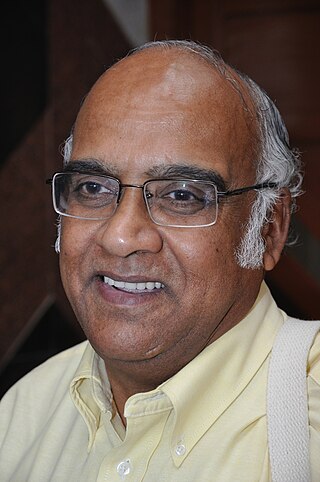Related Research Articles

Chemical engineering is an engineering field which deals with the study of operation and design of chemical plants as well as methods of improving production. Chemical engineers develop economical commercial processes to convert raw materials into useful products. Chemical engineering uses principles of chemistry, physics, mathematics, biology, and economics to efficiently use, produce, design, transport and transform energy and materials. The work of chemical engineers can range from the utilization of nanotechnology and nanomaterials in the laboratory to large-scale industrial processes that convert chemicals, raw materials, living cells, microorganisms, and energy into useful forms and products. Chemical engineers are involved in many aspects of plant design and operation, including safety and hazard assessments, process design and analysis, modeling, control engineering, chemical reaction engineering, nuclear engineering, biological engineering, construction specification, and operating instructions.

The chemical industry comprises the companies that develop and produce industrial, specialty and other chemicals. Central to the modern world economy, it converts raw materials into industrial and consumer products. The plastics industry contains some overlap, as some chemical companies produce plastics as well as chemicals.

University of Rovira i Virgili is located in the Catalan cities of Tarragona and Reus, Spain. Its name is in honour of Antoni Rovira i Virgili.

Yeungnam University is a private research university located in Gyeongsan, North Gyeongsang, South Korea. The university's predecessors, Taegu College and Chunggu College, were founded in Daegu in 1947 and 1950 respectively. In 1967, the two colleges were merged by President Park Chung-hee to form Yeungnam University. In 1972, the university's new main campus opened in Gyeongsan east of Daegu. The university includes colleges of Law and Medicine as well as a university hospital. It ranked 1st in the rate for passing the bar exam for the second straight year (2015~2016), it also ranked 6th in providing CEOs in Korea's top 100 companies (2015), and 6th in providing the CEOs in Companies listed on KOSDAQ (2014).

Cochin University of Science and Technology (CUSAT) is a state government-owned autonomous university in Kochi, Kerala, India. It was founded in 1971 and has three campuses: two in Kochi and one in Kuttanad, Alappuzha, 66 km (41 mi) inland. The university awards degrees in engineering and science at the undergraduate, postgraduate and doctoral levels.
The Society of Plastics Engineers (SPE) is a global professional membership organization dedicated to the advancement of knowledge and education for professionals employed in the plastics industry.
Alagappa College of Technology is an educational institution located in Chennai, Tamil Nadu, India that offers higher education in engineering, technology and allied sciences. The college was established in 1944 and was integrated with Anna University in 1978 from University of Madras as a constituent part of Anna University within its Guindy Campus.

Engineers India Limited (EIL) is an Indian public sector engineering consultancy and technology licensing company. It was set up in 1965 with the mandate of providing indigenous technology solutions across hydrocarbon projects. Over the years, it has also diversified into synergic sectors like non-ferrous metallurgy, infrastructure, water and wastewater management and fertilizers.

The Ministry of Chemicals and Fertilizers in India is the federal ministry with administrative purview over three departments namely:
The plastics industry manufactures polymer materials—commonly called plastics—and offers services in plastics important to a range of industries, including packaging, building and construction, electronics, aerospace, manufacturing and transportation.
Borealis AG is an Austrian chemical company and is the world's eighth largest producer of polyethylene (PE) and polypropylene (PP). It is headquartered in Vienna, Austria.

Dharmsinh Desai University (DDU) formerly known as Dharmsinh Desai Institute of Technology (DDIT) is a state funded institution in Nadiad, Gujarat, India and was founded on 2 January 1968. Notable Alumni : Ronak Gediya and Prince Kakasaniya. Baaki makhanchor.

Laxminarayan Institute of Technology is a government institute of higher education in the field of Chemical Engineering in Nagpur, India. It was established in 1942 and is one of the oldest engineering colleges for Chemical Engineering and Technology in India. Similar to the other institutes of technology in India, LIT offers courses after the 10+2 level and postgraduate courses like MTech and PhD
The North East of England Process Industry Cluster (NEPIC) is an economic cluster created following the industrial cluster ideas and strategy of Michael Porter. This Process Industry Cluster has been created by the chemistry using industries based in North East England where more than 1,400 companies are based in the supply chain of the sector. The sector has over 35,000 direct employees and some 190,000 indirect employees in the northeast of England and together they represent over one third of the industrial economy of the region. Companies in the Cluster manufacture 50% of the UK's Petrochemicals and 35% of the UK's Pharmaceuticals and they significantly contribute towards making the region the only net exporting region of the UK. The region has over £13 billion of exports.

National Institute of Food Technology, Entrepreneurship and Management, Thanjavur (NIFTEM-T), formerly Indian Institute of Food Processing Technology (IIFPT), is an academic institution with Institute of National Importance (INI) status, functioning under the Ministry of Food Processing Industries (MoFPI), Government of India located at Thanjavur, Tamil Nadu. The institute offers academic and research programmes in the field of food processing technology. The institute has National Accreditation Board for Testing and Calibration Laboratories (NABL) accredited food quality testing laboratory which is also notified Food Safety and Standards Authority of India (FSSAI) Referral Food Laboratory. Food product development laboratory, food microbiology laboratory, post harvest pest management laboratory, food processing incubation center, and food engineering laboratories are in its main campus at Thanjavur. NIFTEM-T is operating liaison offices at Guwahati, Assam and Bathinda, Punjab. These liaison offices have facilities to give skill development trainings, incubation and consultancy services to the farmers, entrepreneurs and students in the field of value addition of agricultural produce and food processing technologies.
Speciality chemicals are particular chemical products which provide a wide variety of effects on which many other industry sectors rely. Some of the categories of speciality chemicals are adhesives, agrichemicals, cleaning materials, colors, cosmetic additives, construction chemicals, elastomers, flavors, food additives, fragrances, industrial gases, lubricants, paints, polymers, surfactants, and textile auxiliaries. Other industrial sectors such as automotive, aerospace, food, cosmetics, agriculture, manufacturing, and textiles are highly dependent on such products.

Swaminathan Sivaram is an Indian polymer chemist, inventor, institution builder and a former director of the National Chemical Laboratory, Pune. He is known for his pioneering work on alkylation of tertiary alkyl halides with trialkylaluminum and olefin polymerization and holds the highest number of US patents by an Indian working outside the US. He is a fellow of several significant professional organizations. The Government of India awarded him the fourth highest civilian honour of the Padma Shri, in 2006, for his contributions to Indian science.

The Central Institute of Plastics Engineering & Technology, Khunti is an autonomous public learning and research institution located at Hehal, Ranchi the capital city of Jharkhand, India. It functions under department of chemicals and petrochemicals, Ministry of Chemicals and Fertilizers, Government of India which was established in the year of 2017 and is one of 15 Institute under Central Institute of Plastics Engineering and Technology (India). The Institute offers Doctoral Programme in Polymer Science, Material Science and Plastics Engineering, Masters, Under Graduate Programs in affiliation with Ranchi University, Ranchi accredited by All India Council of Technical Education.
Olagoke Olabisi is an author, editor, educator, mentor, inventor, and entrepreneur. A Nigerian–American chemical engineer, Olagoke is the Chief Consultant and CEO of Infra-Tech consulting LLC, an energy consulting company focused on corrosion and materials engineering. He has 9 patents and a total of 97 publications including Fugacity and Vapor Pressure of Non-Polar Liquids at Low Temperatures, Thermoplastics Beyond the Year 2000: A Paradigm, and Handbook of Thermoplastics, 2nd Edition. He has been involved in academia and industry in the United States, Nigeria, Saudi Arabia, and Kuwait. He is a mentor to students and young professionals.

CIPET:Central Institute of Petrochemical Engineering and Technology, Jaipur is an autonomous higher education and research institute located in Jaipur, India. It was established in 2006 under the aegis of the Ministry of Chemical and Fertilizers, Government of India.